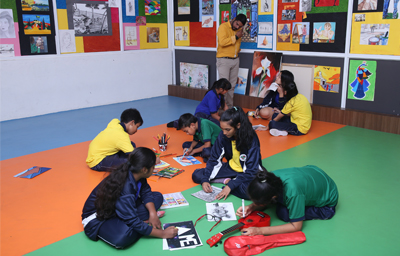
Critical thinking is a skill essential to learners in the 21st century so they can successfully navigate through endless mountains of information available today.
Here are some ways international schools in Bangalore build the valuable skill of critical thinking in their students:
- Begin with a question
This is the simplest foray into critical thinking. Think about what you want to explore. It shouldn’t be a question that can be answered with a ‘yes’ or a ‘no. This question should inspire a quest for knowledge and problem-solving, so that when posed to students it encourages them to brainstorm. As answers emerge from students’ discussion put them on a chalkboard for everyone to see.
- Create a foundation
Students struggle with critical thinking if they don’t have the information they need. It’s a good idea to start any critical thinking exercise with a review of related information. This helps students recall facts relevant to the subject at hand.
- Use information fluency
Part of critical thinking is deciding which information to keep and which to discard. Students need to learn to collect appropriate knowledge to inform critical thinking. This is supported by Information Fluency.
Mastering the proper use of information and developing the ability to make judgments about information reliability is crucial to students’ success in school and life.
- Leverage peer groups
Kids today thrive in environments where critical thinking skills are augmented through teamwork and collaboration. Studies show peers make for an excellent source of information, questions, and problem-solving techniques.
- Challenge misconceptions
Critical thinking often demands intensive work and concentration, for which students should be left to themselves. However it can be helpful to step in partway through their process to check on progress. This gives you the opportunity to correct misconceptions or assumptions, which students will benefit from.
The aforementioned methods cover only some of the popular techniques for fostering the essential and lifelong skill of critical thinking in students. The list is exhaustive and varies from education boards, for instance the top CBSE schools in Bangalore may have a different approach to building this skill.
